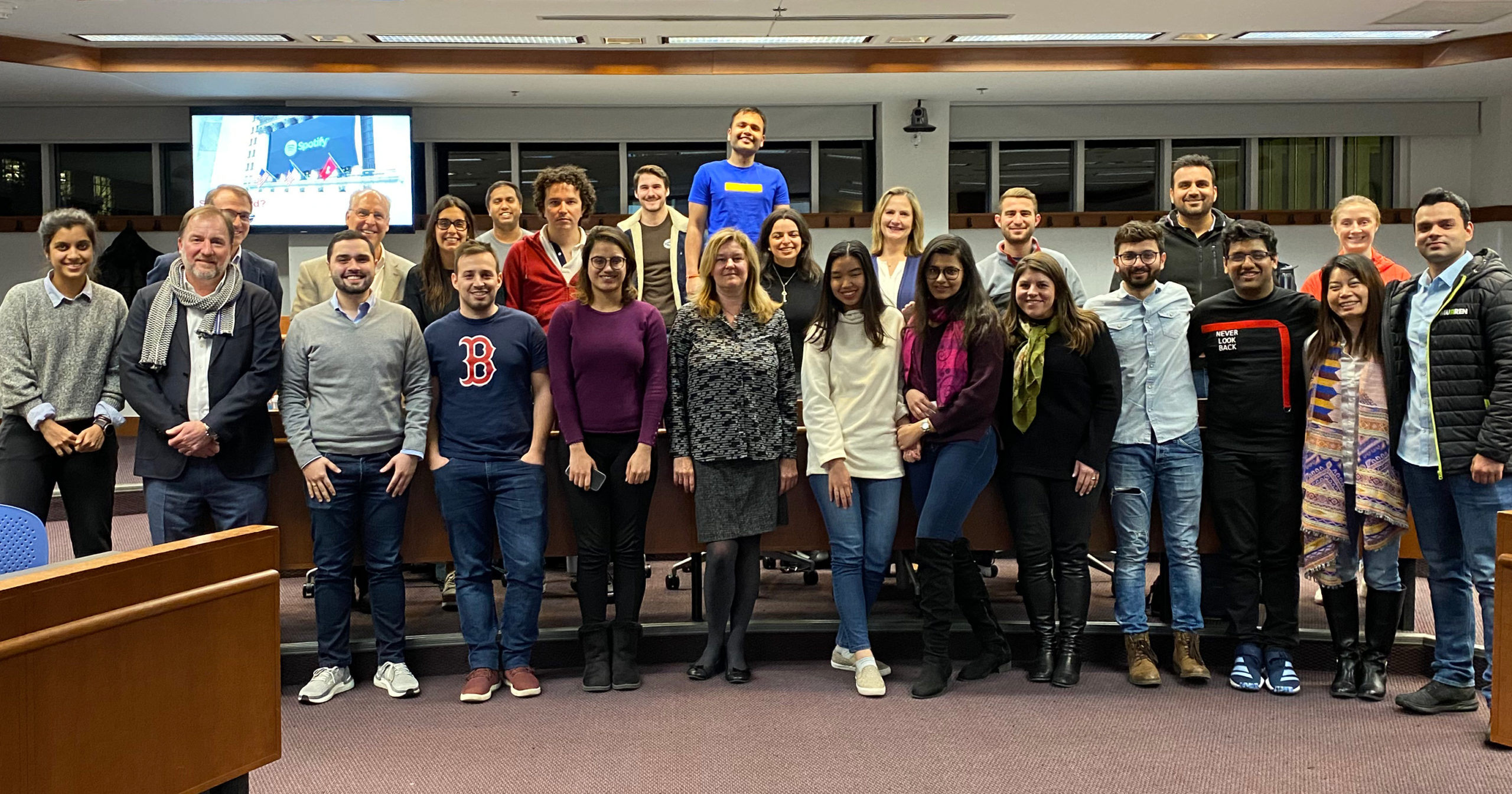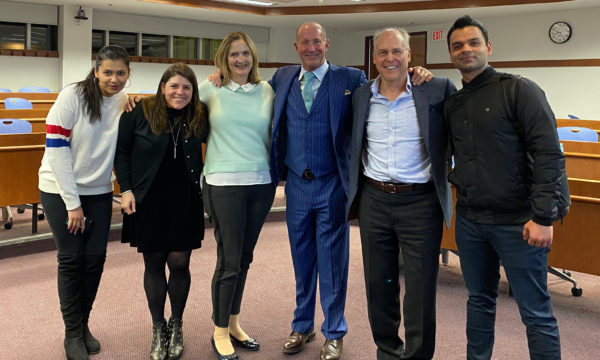Revisiting A Global Business Class

After a full day of work, do you believe you can leave a three-hour Babson course feeling excited and invigorated? This explains how I feel as a part-time MBA student. Babson’s entrepreneurial DNA is evident, and classes are immersive experiences for students, faculty, staff, and alumni.
Before COVID-19 impacted the world, I was on campus every Monday night for a class called Doing Business Globally: Highways and Landmines. This course was designed by the faculty to help students understand the complex and interconnected relationship between countries, from the perspective of leading and expanding an export business.
This class was unique because it was co-taught by four faculty members: co-leads John Marthinsen and Brigitte Muehlmann, with Jean Luc Boulnois and Peter Cohan, They collaborated to leverage their different expertise and also brought in guest speakers in order to provide real-world content.
My classmates and I assessed and navigated the many facets of export opportunities, risks, and uncertainties. The course covered international economics, entrepreneurship, strategy, accounting, finance, and other disciplines. We walked away understanding economic, financial, and social forces that make entering new markets uncertain. We know business landscapes are fluid, and companies need to be flexible, adaptable, and cautious when making decisions.
COVID-19: The Professors’ Perspective
Six weeks after our class ended, with our lives changed dramatically, and with new personal and professional challenges to face, I reached out to my professors for their perspective. I was curious about their outlook on assessing and navigating risks now that the world has turned upside down.
In class, we learned that when navigating uncertainty, some companies and individuals turned challenges (landmines) into opportunities (highways) and harvested rewards. I wondered: How are world leaders, companies, and individuals leading through the COVID-19 pandemic? Who is adapting and making decisions that will allow them to survive in a post-pandemic world? Who stands out as an example of entrepreneurial leadership?
Here’s what they said:
John Marthinsen, Professor of Economics and International Business
The COVID-19 virus is likely to change the way companies think and act with regard to their supply chains and risk management, as well as their business and social networks. The “new normal” will mean putting new emphasis on diversifying risks, building redundancies into otherwise smoothly operating business relationships, and beefing up electronic methods of doing business. Projected future returns need to be modified by the new risks we face and the costs to mitigate them. This will require significant changes in the way businesses think about their outsourcing, offshoring, and reshoring relationships, hedging, direct investments, and ways to transform fixed into flexible costs. We face a whole new set of landmines, and the business challenge will be carving out new highways.
Brigitte Muehlmann, Professor of Accounting
There will always be landmines. COVID-19 has brought on new barriers to doing business globally. The better we understand why the landmines exist, the better we can diffuse them with empathy and creativity.
Peter Cohan, Lecturer of Strategy
The most urgent problem facing leaders is how to create processes that will make it safe for people around the world to work in closer proximity. Solving this problem is essential for limiting the spread of COVID-19 while getting people back to work and creating economic growth. In the meantime, this is a global problem and Babson students should become experts in building the teams and gathering the resources required to solve it.
External Speaker Julia Dvorko, Regional Director, Mass Export Center
Companies doing business internationally should focus on several key issues in the current environment: 1) enhancing their digital brand presence and remote sales efforts; 2) managing risk effectively; 3) assessing and optimizing their supply chains; and 4) coming up with creative financing tools for international customers.

Although I miss my professors and classmates and the in-person Babson learning experience, I couldn’t be prouder of Babson’s entrepreneurial response to COVID-19, including the rapid decision to go virtual. It’s a living example of putting the entrepreneurial method we’re taught in class into action.
President Stephen Spinelli Jr. MBA’92, PhD was a guest speaker in our class earlier this semester, pre-COVID-19. He said then that “every business model requires ambidextrous leadership, and that Entrepreneurial Thought & Action® is a real formula.”
More than ever, companies need to think entrepreneurially and make decisions that will impact their chance to avoid landmines, find highways, and survive.






